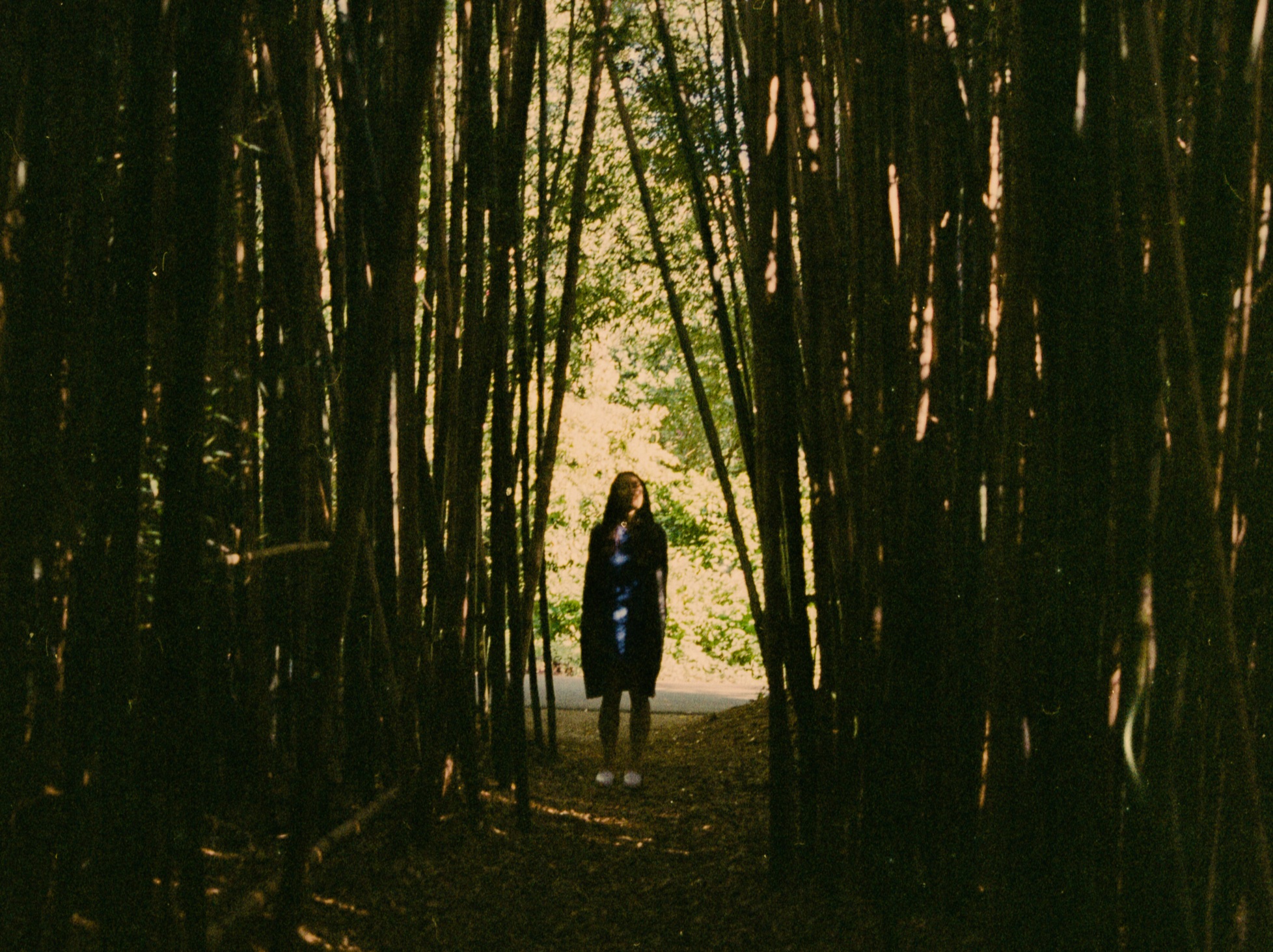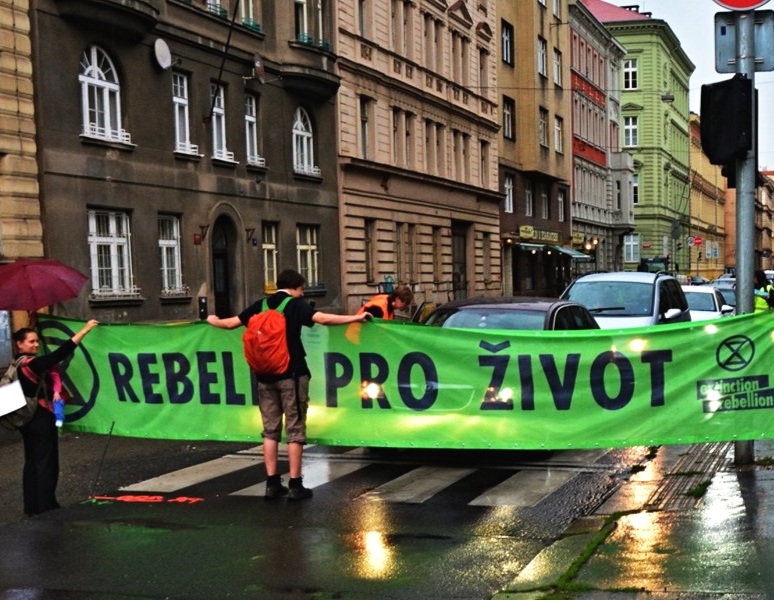Remember why: A note from my past self in Extinction Rebellion
/This post is time travel. It’s a message from the past.
Really. I am writing this in mid-August. The sun is hot. The days are slow and lethargic. The Czechs call this season “cucumber season,” because in our short growing season mid-to-late August is the only season when cucumbers are ripe and so many people spend their time pickling.
My pickling cucumbers all died of mold, so my children will go without pickles this winter. Such is life.
But the other thing about this season is anticipation. And this year that is more true than ever before. We’re working up to what we grandiosely call “the Autumn Rebellion.” It is supposed to be a massive worldwide uprising of people demanding truth, justice and action to avoid ecological disaster.
Creative Commons image by Carl Nenzén Lovén
In London, Paris, Berlin and other western cities, it is supposed to bring transport and industry to a screeching halt. It is supposed shake the major state and corporate structures to their foundations and wake up their CEOs and legislators to the crisis. In smaller and less progressive places, like my own Prague, it is supposed to be the first major rallying cry, the days of love and courage with crowds of protesters, arrests and media coverage.
That’s the plan.
In the midst of a cucumber season with no cucumbers, I am filled with a bit of trepidation. Every day brings a fresh wave of new Extinction Rebellion volunteers. More than anything else, I fear they will be disappointed. They have finally risen, most for their first time doing anything even remotely activist. It’s the first real rising of public demand for change in a generation here. There were small protests, sure, but nothing that captured the hearts and minds of regular people beyond a committed (eccentric) few.
Beyond that, I am putting in far too much time and effort, more than is good for me. And I’ve already encountered some of the social ostracism I dread in any kind of group situation. I can’t help but look ahead with hope and anxiety side by side.
What will the first weeks of October bring? Will our dreams be realized? Will real change come at last? Will it be worth all the effort and sacrifice? Will anything happen at all?
That got me to thinking about sending a message to my future self. Because I know how hard it can be—in the midst of things—to remember the most basic reasons why we throw ourselves into something like this. I could so easily get caught up in worry, get freaked out over failures or be torn up over social rejection. So, if that’s the case, I hope this may help.
Here are the reasons I am doing this:
All last winter I was so depressed I couldn’t move. Every day I took a nap for an hour and a half or two hours because nothing seemed worth it and my body and mind were saturated with grief and despair. When I found Extinction Rebellion that changed overnight. Finally there was something worth doing.
I wasn’t in it to win. When I first joined in April there were ten active people in the entire Czech Republic. They were nice people, but I didn’t really think they could have hundreds or thousands of people active by the autumn. Neither did they. They just said that because it was a sort of goal to put out there. “A thousand people in the fall,” that’s what they said. But I was in it for the moment, for those ten and for whoever came each day.
My role in Extinction Rebellion quickly became that of hearth mother. I am among the older members and that’s a new experience for me, the first time I’ve ever been considered “old” by any standard. I also know how to cook. It’s fun to bring cake, carrot sticks and homemade hummus to a meeting and hear the cries of genuine gratitude from a dozen twenty-something vegans who can’t get a decent meal most places in this city. All of my work has been about feeding the earth defenders, holding hands, nurturing, reassuring, even hugging, as well as teaching empathy and first aid. And no matter what happens in the end, that endless, nearly invisible work will have gone on the same way a mother’s nurturing work goes without guarantees, just because it is needed.
We knew that a thousand people wouldn’t change government climate policy, even in one tiny little Eastern European country. We were doing it because it was the only reasonable and logical thing to do. We did it to be able to get up, look at ourselves in the mirror and not sob with shame and rage.
So, now we have 250 active rebels and it’s August. While I was a raw recruit in April, I am now considered a hardened elder and as such I have to play politics and fend off criticism. But I still have to get up every morning and look in the mirror. So, my reasons haven’t changed that much.
Some people have great hopes for this fall. All around the world people are gearing up and hoping for a massive uprising to force governments and corporations into real action, so that we can survive climate change.
I am among those who hope. I cannot help it. But at the same time I know that no plan survives contact with reality and that things could go haywire in a dozen different ways. It could be far bigger than we expect. It could get ugly with police or football rowdies or impatient drivers. It could be depressingly apathetic and small. We don’t know.
I also know the foibles and imperfections of humans. Extinction Rebellion has built a structure meant to foster a regenerative culture with equity, inclusion and ethics at its core. But still the people running it are just as human as the rest, coming from and living in a society that is toxic, ego-driven and unethical. Will this structure, which looks so good on a flip chart, hold? Will we live up to our ideals?
This is my note to my future self. Keep to your values. Welcome each one. Defend the vulnerable. Stand in your own strength. Seek authenticity.
Remember your reasons. Remember that we do this beyond hope, not for what it might bring in the future but for our self-respect here and now. Don’t lose sight of empathy. non-violence and love.
I will publish this at the midst of it—just before the full moon—when I will likely be too busy to write. It will be a note from the past to myself and to all those working hard the same way.
P.S. This is present-day me again. I’m glad for the reminders. There are now 400 organizers. If they all bring a friend or two, we’ll have a thousand at the big event on Saturday. But the most famous Czech pop singer has died and his memorial service will compete with our actions for media coverage. A massive soccer match will draw six thousand drunk Brits and who knows how many drunk Czechs to the city. And the local Extinction Rebellion group is fractured by factions banning this or that person, including me, from key information channels. Much of it looks like utter chaos. And yet, I have vegan chocolate cake, a fresh batch of hummus, camping chairs, a tent and first aid supplies. Come what may.


















